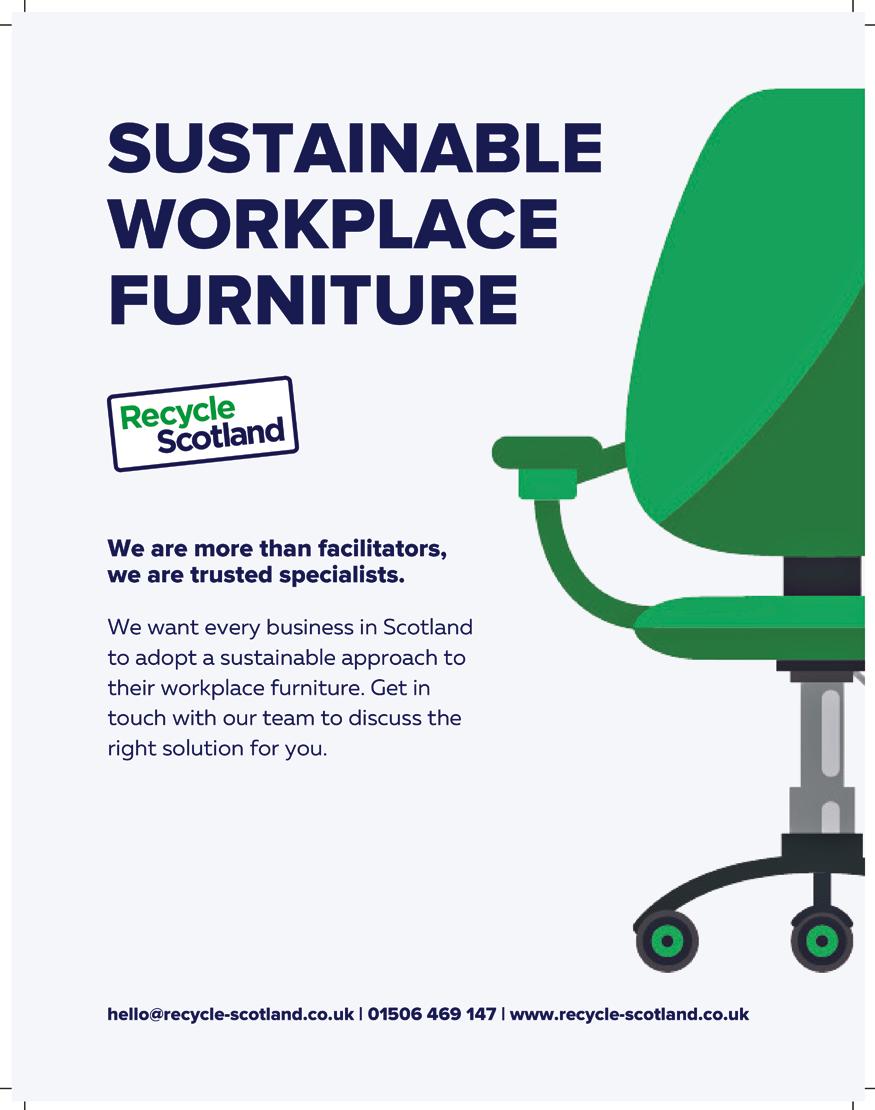Business Comment





Hello, and welcome to the latest issue of Business Comment magazine, which focuses on The Future Workforce.
Amongst the perfect storm of challenges facing businesses in 2022, tackling the skills and labour shortages ranks amongst the keenest priorities. Not having sufficient, skilled staff is hampering our recovery and future growth.


So it is interesting and informative to learn a little about what other organisations are doing, and how they view the situation.
In this issue, we see the situation from a variety of viewpoints. Catherine Foot, Director of Phoenix Insights (a think tank established by long-term savings and retirement business Phoenix) put matters into perspective by highlighting figures that show closing the UK skills gap would generate a £150bn uplift to the value of our economy.
And yet, she points out, the UK still lags well behind other OECD countries in investment in adult education, and her own organisation’s research shows that a shocking 70% of hard-pressed businesses have not offered any development opportunities or training to staff in the past year.
We also hear from the enormously important hospitality and leisure sector in Edinburgh, with some positive progress being achieved despite the huge difficulties the sector is facing post-pandemic – not least access to
staff. Growth is still being achieved by some, not least by the pioneering work being carried out FUSE and St James Quarter.
Fiona Gray, HR Business Partner at Anderson Strathern, puts the immediacy of the skills challenge into context by highlighting that 40% of skills that employees need will change within the next three years.

New working patterns, the drive to net zero carbon, technological and AI innovation, increased digitisation and the energy crisis will be major factors in driving the pace of change, she advises, and employers need to be prepared.
Elsewhere in the magazine, we learn more about the changes, innovations and hard work of our members. In particular, it is good to welcome Nora Senior, a strong supporter of the Chamber, to her new role as Chair of the Board at Edinburgh College – one of the institutions who will be working to help businesses meet their skills needs.
Enjoy the magazine.
Liz McAreavey Chief Executive, Edinburgh Chamber of CommerceNever too Late to Learn


wider society. Edinburgh College is already leading the way in addressing many of these challenges through innovation, sectorleading curriculums and quality teaching in subjects spanning Automotive Engineering, Construction, Health Professions and Social Care, through to Finance and Music and Sound Production.
including Net Zero, Health, Poverty, Economy, Digital and Data Innovation and STEM. It recently introduced state-of-the-art Digital Care Hubs at two of its campuses, providing training to the current and future NHS workforce, as well as a Renewables and Energy Efficiency Training Centre which is equipping students and apprentices with the skills to build greener homes.
Over the course of a 30-year career in industry, Nora has held several senior executive leadership positions, latterly as Group Executive Chair of global communications and government relations consultancy, Weber Shandwick, and previously with Saatchi and Saatchi, working in the UK, Asia and USA.
A former Businesswoman of the Year, Nora holds extensive experience at non-executive board level in both public and private sector organisations, currently as Chair of East Midlands Freeport and having been Chair of the Scottish Government’s independent Enterprise and Skills Board and previously President of British Chambers of Commerce.
Speaking about her appointment, Nora said: “College education is special and has a crucial role to play in addressing the longterm challenges facing the economy and
“Education that is more than an academic qualification; it’s about equipping people for successful jobs and careers. Edinburgh College also has an important role in enhancing the wellbeing and prosperity of its communities and I’m looking forward working with our Principal, Audrey Cumberford and leading the Board of Management to support the College in delivering a secure and inclusive environment for all our students.”
Nora’s appointment comes at an important time for the College as it launches its new Strategic Plan. The plan will build on the College’s strong foundations of providing lifelong education and training to its students and business partners to meet current and future skills demands, positively impacting the economic growth potential of the region.
The new plan also details how the College will deliver on Scottish Government priorities
Nora added: “The College delivered upskilling and reskilling training to over 300 businesses and 10,000 employees last year – through many bespoke courses developed in partnership with businesses. A key focus for the coming year will be building on existing partnerships and establishing new ones to capitalise on innovation expertise among academic staff which will enable businesses across the region to be more productive.
“A track record of sending 96% of students into work or further study, highlights the role the College plays in embedding the knowledge and skills students require to move onto a positive destination or progress in the workplace.
“As Scotland’s Capital College, we are well placed to deliver for students, employees, businesses, policy makers and the economy, now and in the future.”

We know that women in the workplace have been disproportionally impacted by the pandemic, with one in four having considered leaving the workforce or putting their careers on hold to meet the demands of having a family, compared to one in five men. As many families already contend with childcare challenges that typically impact women more than men, it is crucial that employers take their needs into account to avoid a drain on vital female talent and experience.
“Quiet quitters” are employees who decide to do the bare minimum of what they are contractually obliged to, and nothing more. For example, they may not be willing to take on additional projects and tasks, or find new ways to become more productive and efficient.
Some businesses are consequently incurring a financial loss equal to 20% of the “quietly quitting” employees’ annual salaries, while the annual cost to the UK economy amounts to some £340 billion. Employers must be aware of this phenomenon and should consider what positive action they can take to combat it.
Flexible working policies have helped to reduce burnout and are here to stay in many sectors. However, remote working has also contributed to the “quiet quitting” phenomenon. 60% of employees have reported that they currently feel disengaged from their workplace, with a lack of office presence being cited among the top reasons for that disconnect.
Traditional tactics used to create an inclusive and diverse workplace culture are proving ineffective. Employers must innovate to re-engage their workforce and prevent them from “quietly quitting”.

Employers could consider enhancing family leave entitlements, flexible or agile working arrangements, introducing menopausal and fertility concerns policies and paying greater
genuine attention to employee wellbeing. Senior members of staff should set a positive example by demonstrating their own professional boundaries and encouraging others to do the same.
The Harvard Business Review recently suggested that employees may “quietly quit” as a response to feeling undervalued and unappreciated at work. Employees are still willing to “go the extra mile”, but only for employers who they trust and respect and, crucially, who they feel trust and respect them.
Managers should seek to develop collaborative relationships with their team by encouraging open and honest communication and positive reinforcement. This could include finding common ground with each team member and keeping everyone up to date on all aspects of work, including support offered to employees.
Managers should extend the spirit of open dialogue by offering regular 1:1 meetings, during which employees should be invited to raise concerns and to express genuine feelings about their work. This can enable managers to address and resolve any issues head-on, which helps to avoid employees opting to submit grievances, leave the business or just to quietly quit!
However you need to grow, Dentons is here to help. www.dentons.com
The post-pandemic work landscape has changed irreversibly, and employers have a renewed responsibility to meet employee needs and a focus on retaining staff. Today’s employees place increasing importance on securing a healthy work-life balance, with nearly 60% of employees saying they value this more than a 10% pay rise.
Employers must innovate to re-engage their workforce and prevent them from “quietly quitting”.

The only difference between a brand and a commodity is meaning. If everything was just a commodity, we’d face a constant race to the bottom. So, before you pull your running shorts on, let’s talk about what brand can do.
A brand is like an emotional shorthand –positioning your business, and its appeal, in your audience’s mind. Like, when you think of Harley Davidson, you think ‘freedom’. Think Volvo, think ‘safety’. Think Kit-Kat, think ‘break time’. This emotional shorthand shapes the way we feel about businesses, and their products and services.
Your brand isn’t your logo. Or your name. Or your advertising slogan.
It’s not the tone of blue your team wears. It’s your reputation.
And that means you don’t get to define it. Your audience does. And it’s based on what they think about your ads, your products, your customer service – what they say about you in the pub.
If you want your audience to come up with a consistently positive answer you need to have a consistent, deliberate strategy behind everything you do. A singular focus that unites what you say and how you say it (visual identity, tone of voice, messaging) with what you do and how you do it (product, culture, service). Without this, you could be shelling out to build five, six, seven different reputations.
So how do you get to that unifying
idea? Well, over the last 18 years we’ve developed the answer – a gutsy approach to brand building.
‘Guts’ has two meanings for us – substance and standout.
Substance is about getting to the guts. Depth and integrity. Asking awkward questions about the leadership’s vision, the competition, finding out what your customers actually want. It takes a lot of digging, but it’s worth it to find out exactly what your business is made of. What makes you genuinely different. Get a single, sharp thought at this stage and it can unite your business – like Harley Davidson’s ‘freedom’.
The second part, standout, is about cutthrough creative. Having the guts to take your single, sharp thought and explore it with creative freedom. Until you have something that isn’t like the rest of your sector. Like a fence in the wind – the deeper you dig with the substance, the higher you can go with the standout. And you’ll find your brand is bolder, sharper, and more memorable for it. Remember, not everyone in your team has to like your creative work. But everyone should see how it fits your brand’s sharp focus.
Camp-splitting creative that makes you nervous is usually the sign of a high-impact idea – the type that can get huge results for your business.
What sort of results are we talking about?
Well, three decades of international research shows that creatively-awarded campaigns deliver 11 TIMES the return on investment of non-creatively awarded campaigns.
If that’s the sort of impact you’d like a piece of, give us a nudge at StudioLR.
And in the meantime, here’s a reading list to whet your appetite:
The Brand Gap by Marty Neumeier
Predatory Thinking by Dave Trott
How Brands Grow by Byron Sharp
How Not to Plan by Les Binet & Sarah Carter
Everything on www.markpollard.net
In the last issue we looked at strategies to help business owners secure the best value for their business prior to selling. In this issue we look at the options you have in a negotiation when you don’t have the ability to offer the highest or most attractive price. We asked John Ross, managing partner of specialist negotiations advisors Ogilvie Ross LLP, how do you compete with the lowest price offer.
BC: John, how important is price in a negotiation?
JR: For many people they believe it’s the most important factor. However, we tend to find it’s only one of a number of factors depending in the exact nature of any deal. Other aspects can be terms and conditions, ongoing service provision, staff welfare guarantees, longer-term buy-out options and a host of issues which can be highly personal.
BC: But surely these factors are less important when it comes to the actual bid?
JR: Not in our experience. I’ll give you a recent example. We were advisors to a local authority that had been approached by one of their long-term suppliers to see if they would be interested in buying a major part of their trading business. The authority already had a working partnership with the supplier where they provided aspects of the process and the supplier was an integral part of the overall service. If the supplier pulled out of that part of their business, the authority would suffer potential losses and service disruption and it could take considerable resources and time to replicate what they already had in place. As a result, there was pressure to get the right deal and to try to prevent it from becoming an open bidding was.
BC: How do you start to prepare for something like this?
JR: The first step was helping the authority understand what the purchase process was likely to be and where they would need to define their very specific walk-away points, or in current language their “Red Lines”. A key aspect would be the potential purchase price. This is public money and has to be very carefully monitored and allocated so the amount that could be offered was absolutely fixed with no room for negotiation. It was based on a very detailed analysis of the information provided by the seller to identify what the potential payback was and the various reasonable variations which could
impact the final price. Once that number was calculated, it was presented to the authorities’ senior management, and they authorised the team to make their initial approach.
BC: What did the seller think?
JR: The initial conversation quickly identified that the seller wanted a figure about three times what had been calculated and it was very clear that the two parties where nowhere near each other in terms of price. We had anticipated this and created a strategy to discuss the wider reasons for the potential sale including personal drivers. This revealed other significant factors in the seller’s mind, including how the existing wider customer base would react, how long-term staff would be treated, potential other revenue sources that could be jointly developed and personal retirement planning for the business owner. The more we talked, the more both sides understood where they were coming from.
BC: Did this bring about a deal?
JR: No, clearly there was a massive difference in the respective valuations of the business and we needed to see how this came about. We negotiated a brief exclusivity period to allow more detailed information to be provided by the supplier to help understand his valuation. Once the authority had full disclosure of the operation then they realised that they could raise their bid amount and still get the same payback performance.
BC: Was this sufficient to close the deal?
JR: No and it then became apparent that the seller was going out to the wider market and alternative bids were invited. As the other bidders were private companies that did not need council approval of any spend it was clear that the authority was now the lowest bidder with no scope to get into a bidding war or auction. With this new factor, we created a plan to leverage the strong personal relationship between the business owner and the key staff in the authority
focusing on the long-term benefits of a continued partnership. This brought the two parties closer together and while it was not easy, it ultimately brought about acceptance of an offer which was financially well below all the other bids but provided many more long-term advantages to the seller. Both sides achieved what they really wanted, which was not based on the highest price.
John Ross is a strategic advisor to government and public sector organisations as well as charities, sports governing bodies and social enterprises. He can be contacted via john@ ogilvieross.co.uk.

www.ogilvieross.co.uk


1 in 7 people in the UK is estimated to be neuro-diverse (ND) according to ACAS. That’s a lot of people, even in a small country like Scotland with just over 5 million inhabitants. Have a look at your family and friends – there are bound to be people within your close circle for whom the brain functions, learns and processes information differently. What about in your workplace?
Chris Carr Associate Workplace Consultant, Space Solutions
A sizeable percentage of ND people might never enter the workforce (estimates are that only 20% of ND individuals are in any form of employment), and thereby lies a massive untapped potential of different experiences. Some progressive employers are putting in place programmes to offer routes into employment for people who might otherwise slip through the net – EY and Microsoft are just two companies that have specific hiring programs for ND individuals.
Biodiversity is undoubtedly a positive for the environment and cultural diversity also has benefits for us all. What about diversity of thought in the workplace? Surely that must be good too?
So why are so many ND people not in employment? Perhaps it’s because we haven’t created an appropriate supportive environment for them. (And by environment we’re not just talking about the physical environment, but the technological environment, the policy sphere and the organisational culture).
How can we design an appropriate environment for such people if we don’t know or don’t want to know about and learn from their lived experiences? Often those who actually need the most from the space are not heard, or if heard,
often heard too late. That’s maybe our fault as consultants and designers for not wanting to get bogged down in the minutiae too early in a project, but we need to be asking questions upfront about designing for neurodiversity, about responding to the 9 senses (yes, 9). We need to hear from those with real lived experiences of how we can make real differences through design.
As Nigel Oseland said in his 2021 Workplace Trends presentation, “design for the range, not the average.” Alison Cox of 3i echoed this in a talk she also gave last year by saying that designing for neurodiversity would “benefit everybody, disadvantage nobody.”
A real-life example of the importance of designing for neurodiversity was presented last week in a presentation by
was quite candid about how her life and her outlook has completely changed following a brain injury. She recounted an episode where she found herself having to navigate her way back into a meeting room from toilets located in the building core and found that the wayfinding and signage hadn’t allowed for that direction of travel, causing her to feel stressed. Something as simple as well-thought-out signage can have a massive impact for ND individuals.
Listen to people and learn from their lived experiences – and make it easy for them to pass on their knowledge.
Chris arrived in workplace consultancy following stints as a scientist in the USA and a tour guide in Greece. He is passionate about the interaction between people and the workspaces they inhabit. Over the past six years, he has worked with numerous clients to help them envisage more effective and engaging spaces.
“Biodiversity is undoubtedly a positive for the environment and cultural diversity also has benefits for us all. What about diversity of thought in the workplace? Surely that must be good too?”

There’s no escaping that there’s a skills gap in the financial services (FS) sector across the UK. Research published by PwC and the Financial Services Skills Commission (FSSC) laid that bare. It also opened discussions into the benefits for businesses and employees of reskilling, which will be vital to the sector’s success.
I’ve previously hosted a FSSC and Scottish Financial Enterprise (SFE) roundtable alongside industry figures in politics and education. Various, sometimes unexpected, themes were discussed from allaying the ‘fear’ of reskilling, to rethinking recruitment strategies and engaging in creative ways to foster a reskilling environment.
It’s clear that reskilling isn’t just about commercial benefits – there’s also a social imperative, in terms of providing access to skills-building opportunities to existing and prospective FS employees.
Discussing the ‘business case’
‘Reskilling: A business case for financial services organisations’, has been used as a catalyst by FSSC for conversations around the need to address the skills gap, which is evident in Scotland where 45% of FS employers attribute vacancies to skills shortages. This is a challenge which could hold back economic growth, but also presents an opportunity for the sector in Scotland to lead by example.
PwC’s Hopes & Fears Survey of the UK workforce backs this up. While 73% of CEOs want to increase their workforces next year, 70% say a lack of skills is their biggest challenge. The research identified that one in five employees is looking to change jobs in the next 12 months.

So why not give them the opportunity to change without moving?
Addressing the existing skills gap stands to boost output from the Financial Business Professional Services (FBPS) sector by over £1bn by 2028 – doubling to over £2bn the following decade – as well as offering cost savings. It’s estimated reskilling can save approximately £49,100 per employee, compared with ‘redundancy and rehire’ figures for the sector.
In Scotland, we’re building from a solid foundation. With the UK’s largest financial centre outside of London, FS is the second largest contributor to the Scottish economy, employing people at every level.
We compare favourably with other UK regions, being among the top three in terms of the proportion of FS workers holding higher level finance qualifications – around 68%. The country, particularly Edinburgh, is also home to some of the sector’s largest financial institutions and industry’s most innovative individuals.
There’s a willingness to not only discuss the importance of reskilling to the future of the sector in Scotland – and hunger to come up with solutions to tackle the challenge.
There’s still work to be done, but the need is great. I hope that reskilling in the sector isn’t discussed as a standalone –but something that becomes ‘business as usual’ to support the sector’s constant evolution and nurture the incredible talent at our disposal. We’ll continue to convene stakeholders, to work together on solutions to build and secure the future skills for the industry.
www.pwc.co.uk

Loganair, the UK’s largest regional airline, has identified the most popular routes with its valued business travellers and has created a new flexible and cost-effective fare to support businesses with connectivity across the UK.
This includes the Edinburgh – Southampton route which operates up to five times daily, allowing customers to arrive early for a full day of business and return home the same day.
The new Business Connect fare allows customers to book a minimum of five flights in advance and receive a 15% discount, with full flexibility to change flight dates at any time – a welcomed perk for corporate bookings, with rescheduling meeting times and locations a matter of course in the business world.
It’s not just flexibility; the new Business Connect fare means passengers who often travel on selected routes could qualify and benefit from
an upgraded 23kg luggage allowance and free airport fast-track security – ideal for when those business meetings overrun.
The airline has additionally launched a Business Connect + fare, which goes a step further and allows organisations to book a minimum of ten flights with the same benefits but also allows for full name change flexibility, meaning anyone within the company can travel.
Furthermore, each journey qualifies for Clan Points to redeem against future travel as part of Loganair’s loyalty programme. These can be redeemed on future business trips, or to explore some of Loganair’s other routes and enjoy a weekend of leisure.
The airline is confident that the new fare, which is also available on its services from Glasgow to Southampton and Aberdeen to Birmingham, Manchester and Teesside, will be particularly
popular among small and medium-sized enterprises looking to save on transport costs this winter.
With businesses looking for more flexibility in how they book and the need to book several flights simultaneously, the new product comes as welcomed news – allowing them to do just that.
Business Connect is now available to book online at www.loganair.co.uk/campaign/ business-connect-fare while Business Connect + can be booked at www.loganair. co.uk/campaign/business-connect-plus
Harvey Nichols, Edinburgh has set a precedent for luxury retail in the Scottish capital and beyond. The department store offers customers the very best in designer fashion, beauty, food and wine and is widely regarded as the unrivalled leading luxury destination in Edinburgh.
However, beyond the daily offer presented to fashion forward customers, the store also offers a special corporate service for small to large Scottish businesses.
Cristina Tait, Corporate Events and Gifting Executive for Edinburgh, explains more about the bespoke offering.

‘The corporate team at Harvey Nichols provide a concierge service to our business clients. Whether you wish to host a memorable event for your staff or customers, or your preference is for gifting, we can help with everything from the most intricate hamper orders to large scale functions and events.’
‘As the Events and Gifting Executive for
beverage menu to suit their specific needs, ensuring a smooth-running event from start to finish.’
Edinburgh, I look after our clients in Scotland, since Harvey Nichols, Edinburgh is the sole Scottish store in the brand’s portfolio.’

‘The Forth Floor has its own Private Dining Room, open-plan Brasserie, Bar, and Terrace, all of which can be hired individually or as a whole. Ideal for corporate receptions, celebrations, private dining, breakfast briefings and lunch meetings, the Forth Floor can create unique, tailored events with an individual style. I work closely with our clients to design a food and
‘If you’re searching for the perfect gift, as part of the Corporate Team, I offer a dedicated service and am here to help you. Corporate gifting is perfect for congratulating staff and building client relationships. From our bestselling food & wine hampers to extraordinary gift experiences such as 1:1 styling within our Private Shopping department and beauty pampering, there’s plenty to choose from. For loyal clients we also offer exclusive discounts and added benefits, such as personalisation and REWARDS points, on corporate orders.’
For any enquiries regarding events or gifting solutions with Harvey Nichols, please contact Cristina (t) 01315248325 (e) cristina.tait@harveynichols.com.
Are you a regular business traveller? Well, you’re in luck, as a new, discounted, and fully flexible airfare has been launched exclusively for frequent business travellers.Cristina Tait

Association of British Insurers (ABI) figures showed that in 2021 around 14,000 UK businesses chose to insure their trade debtors - the part of a company’s accounts that shows money owed. In comparison to other insurance classes such as property, stock and liability insurance, the uptake is relatively low.
Damon Clulow Business Development Director at Aon ScotlandThis statistic always surprises me given that trade debtors are often a company’s largest asset. I think one of the main reasons that directors choose not to investigate how a credit insurance policy can support their business, is the perception that it is just another insurance or expense. This could not be further from the truth. In fact, companies that use credit insurance will generally spend less on their overall credit control costs over time.
Credit Insurance policies are built to complement a good credit control function, or to install some discipline
if that 90-day column on the aged debt report is becoming a concern. Most insurers will chase a seriously overdue debt for you, and they are very good at collecting it. After all, they would rather bring the money in than pay the claim! This also ensures that your debt is prioritised when a buyer may be experiencing cashflow issues. One of the most positive pieces of feedback I hear from clients with a credit insurance policy, is that they get paid more quickly, meaning they can use those funds to grow their business or reduce their funding costs.
The process is straightforward. You ask the insurer if they will write cover on your customers wherever they are in the world. They will often base their decision on information unavailable in the public domain such as management accounts, or payment performance data. If approved, you are ready to trade. Should
the client become seriously overdue, they can also arrange collection of the debt, which is particularly useful in overseas markets where different legal processes apply. And should the client cease to trade, you can claim on the policy.
The best part is that it costs nothing to review. You complete a simple questionnaire and Aon will approach the market on your behalf, giving you expert opinions on your key clients and prospects, and a no obligation proposal.
If you would like to know more about how credit insurance can help protect and grow your business, then please do not hesitate to get in touch.
Damon Clulow, Business Development Director, Aon Scotland. 07385 408 203 / damon.clulow@ aon.co.uk.


After COP27, whatever you think of the outcome, our focus is drawn to climate change and carbon emissions. Much of the talk is of insulation and heat pumps being the answer where buildings are concerned. And although this is undoubtedly part of it, a more humble and unappreciated part of the building industry has an even larger part to play: maintenance.
Research in 2015 by The Society for the Protection of Ancient Buildings (SPAB) showed that a dry wall is 30% more thermally efficient than a wet one. The science behind this is surprisingly simple: water is a brilliant conductor, so having it sat in your walls and roofs is a sure way to leak heat energy.
Buildings have systems to keep themselves dry, be that gutters and downpipes, voids and ventilation, renders and pointing, or slates and tiles. If unmaintained they allow the building to be damp, emitting more heat and using more energy. Added to that, if we ‘retrofit’ with new systems and products, they will often underperform if in a damp building, making them useless, or even actively dangerous.
Having a well maintained building gives us up to a 30% energy efficiency boost without doing any significant work. Yet despite this it is rarely
talked about as being a ‘green skill’ or part of energy efficiency.
Maintenance jobs are stable, avoiding boom and bust. They are also typically local and small scale, acting regeneratively on our communities by keeping money near to the place of work.
Maintenance can be either preventative or reactive. Preventative is cheaper than reactive for many reasons. A good tool to help is a Planned Preventative Maintenance (PPM) schedule. This lists all the parts of the building and gives the next step for each to keep it well maintained, along with budget costings and a schedule over the next five or ten years. This gives a plan and a budget. This can be expanded to look at upgrades, end of life, and compliance. It can even include energy efficiency measures, social and environmental impact plans and so become a full ‘Building Passport’.
Many conservation architects and building surveyors can provide PPMs, though for them to be fully impactful you should always ask for it to be holistic and on a triple bottom line. Do you need a plan?

ealaimpacts.co.uk


Job Title: Chief Marketing Officer / Head of Commercial
Company: CodeClan
CodeClan is Scotland’s only Digital Skills Bootcamp. We are 7 years old and were originally set up by the Scottish Government, Skills Development and ScotlandIS. We have over 2000 alumni that have gone through either one of our short courses or one of our two immersive courses in either Software Development or Data Analysis.
I am the Chief Marketing Officer, and I’m responsible for the Marketing, Commercial, and Admissions team. So basically all marketing/brand and comms for the business. All sales for training and hiring to industry, and the admissions of students onto the course.
Our grads can go into a range of roles across Software development and Data. Some example Data roles: Data Analyst, Data Engineer, Big Data Analyst, Business Analyst, Information Analyst, Machine Learning Analyst, Security Specialist, etc.
Some example Software roles: junior software developer, Full Stack developer, software engineer, front-end/back-end developers, automation developer.
Both skills are essential for the future workforce across all sectors. As the saying goes, every sector is now a tech sector. CodeClan is supporting the development of individuals for the roles that businesses so desperately need to grow. Offering a steady pipeline of graduates ready to go into jobs and hit the ground running.
An employer should consider hiring one of our grads for many reasons but the main reasons would be because of their dedication and drive. These are individuals who have given up their current careers to follow their passion. That takes guts and an unrivalled drive and ambition to succeed.
Exciting. We are only seeing the beginning of the growth. There are new and exciting technologies being created every day. There have been some very busy people creating a new future for us when the world has been preoccupied coping with the pandemic
Yes. Lots actually. But our most recent exciting project has been the launch of our first ever CodeClan Youth Academy for 16 - 21 year-olds. The younger generation has always been in our future but we need them now more than ever. The biggest generational change in centuries is on our doorstep and we have a fundamental skillset being missed in our school’s curriculum. However this problem can not be solved purely in schools. Industry has to take some responsibility and step in to support. So if there are any companies out there interested in supporting, please get in touch.
An Olympic Showjumper. I started my career in the horsey world, or as an astronaut. I am becoming fascinated with space and the skies
3. How has CodeClan’s Professional Software Development and Professional Data Analysis courses impacted the future workforce?
4. What kind of career opportunities do CodeClan’s courses present to students?
5. Why should an employer consider hiring a CodeClan graduate?
7. Are there any innovative projects on the horizon at CodeClan that you are able to share?
8. Other than your current position, what would be your dream job?Linda Scott
“An employer should consider hiring one of our grads for many reasons but the main reasons would be because of their dedication and drive. These are individuals who have given up their current careers to follow their passion.”
Travelknowhow Scotland is calling on organisations across Scotland to encourage a more climate-friendly commute, with transport currently the largest contributor to UK domestic greenhouse gas emissions, according to Government statistics.
Travelknowhow Scotland, a Scottish-based organisation providing free workplace travel planning guidance, believe that all businesses across the private, public and third sectors, can play a pivotal role in helping to change the way we think about commuting and transport moving forward.
There are plenty of approaches that organisations can take with their travel initiatives, including supporting longer term working from home, encouraging employees to cycle to work over driving a few days per week or even incentivising greener commutes through walk to work competitions.

More flexible working allows employees reliant on buses and trains to travel during off-peak times and ensure a safe commute to the workplace, and access to cycle lockers and changing facilities can encourage employees to change their travel behaviour. It is about knowing what measures offer the best fit for your workplace.
Travelknowhow Scotland’s FREE travel plan
consultancy package, in partnership with Cycling Scotland, Sustrans and Smarter Choices Smart Places, has been extended throughout 2022/23 to support organisations in making these travel changes.
Open to all organisations across Scotland, Travelknowhow Scotland is providing three days of FREE travel planning consultancy to help organisations encourage more active and sustainable travel amongst their employees.
The announcement follows the success of Travelknowhow Scotland’s first limited consultancy support package, which saw organisations take advantage of the service to successfully improve the health and wellbeing of their workforce, whilst contributing to netzero targets.
Organisations in Scotland interested in the free consultancy can benefit from a bespoke package tailored to the requirements of their organisation. This will include employee travel survey design and analysis, strategy development, and bespoke active and
sustainable travel action plan with practical measures and signposting to longer term implementation support via a network of partners.
Contact info@travelknowhowscotland.co.uk to make an expression of interest (no more than 200 words) and Travelknowhow Scotland will get back to you to discuss your requirements in more detail.
For more information, visit travelknowhowscotland.co.uk/pages/view/ free-consultancy-support-available-forworkplaces
the studio. We also run photo walks and workshops.
Q Where do you read your copy of Business Comment?
Company
Job Title: Photographer/Partner
Q In five words or less, what does your organisation do?
A Shoot photographs to promote businesses.
Q How long have your been in your current role?
A This will be our 15th year in business
Q What does a week in your job look like?
A It can be shooting a corporate event on location or headshots for a website in
Q Your proudest moment with your organisation, or biggest ‘win’?
A The success of our Edinburgh Fringe Exhibitions -it’s personal work, but really just an extension of the photography we do for businesses -we’ve done seven now!
Q Your favourite top tip or quote in business?
A A photography quote that could apply to business is :“F8 and be there”. It just means be prepared and take your opportunities.
Q How long have you been a member of the Chamber for and why did you join?
A We’ve been members since 2010, and joined because it’s a great way of getting out there and meeting others in business.
A I read it online now but I still have a collection of magazine back copies that include some of our Chamber Event Photos.
Nash Squared, formerly Harvey Nash, produces one of the world’s leading annual digital reports using Edinburgh as one of its global launchpads.

Many business leaders spoken to reveal it’s harder than ever to recruit good IT specialists. It makes it difficult to keep up with the pace of change.
Nash managing director Ronny Lammelen told ComputerWeekly.com an organisation should adopt a «flexibility first» policy. Rather than demanding «100 per cent fit - even 110 per cent» - to meet their experience-and-capability wish list.

Applying such a rigid approach means they’ll lose out in one or two ways: not finding that “perfect candidate”, or overpaying. Better to shift to 80 per cent, the other 20 per cent met through training, support and development once in the job.
It brings us onto age. Most sought-after candidates are 35-49, but organisations should not rule out the under 35s or over 50s.
Brilliant people can be found in both groups. One full of potential for the future, the other with invaluable experience and work knowhow (and still with a future!)
Another key is to invest in training and upskilling. One company recognised a significant software development skills requirement in four years’ time. They trained up existing software engineers and moved them into these roles at the right time.
Look outside the business for talent to be supported into a tech career. Individuals with the right aptitude, mindset and ambition will appreciate their chance and show loyalty in return.

Oh, and when it comes to remote and hybrid working that sprang up during Covid: remember to balance an organisation’s needs with what your employees desire.
This will doubly ensure you get the very best from them as part of a team. Whatever their age happens to be..
The Digital Era has made it crystal clear age is of little relevance when it comes to discovering talent and developing in-demand skills.
SQA has more than 2,000 different types of qualification available to schools, colleges, training providers and employers – from Higher Nationals, National Qualifications to a wide variety of vocational and customised qualifications supporting sectors such as health and social care, construction, hospitality, travel and tourism and leadership and management. We work with industry, employers, and skills specialists to develop qualifications that support businesses in continuing to develop their workforce.
One of these types of qualification are Scottish Vocational Qualifications (SVQs). SVQs are based on job competence and recognise the skills and knowledge people need in employment. With over 500 SVQs available, they can be attained in most occupations and are available for all types and level of job, from accounting and construction to forestry and fashion. They range in level of difficulty from SCQF level 4 up to SCQF level 11, allowing for progression in the workplace.
SVQs do not have formal written exams, and are instead assessed on the practical activity undertaken in the workplace and a portfolio of evidence that meets occupational standards. This makes them ideal for those in full-time employment wishing to undertake a qualification. Having an SVQ is not only a personal achievement; it also shows employers that you can competently do your job to the national standard in your sector with confidence, and that you are motivated and committed to your work.
UCAS will soon begin to allocate tariff points to all SVQs at SCQF level 6. This has previously been difficult to do due to the spread and variety of credit points in optional units selected by candidates.
However, UCAS and SQA have been working together to determine a model which would allow for UCAS tariff points to be allocated using SCQF credit points. A new banding model has recently been approved, and as of May 2023, UCAS will begin to add these credits to their tariff tables.
Another example of how qualifications support industry is the games industry. With eleven colleges and seven universities producing graduates with skills in game design, development, and production, Scotland’s capacity to produce talent for the games industry is undeniable.
SQA offer a large variety of computing qualifications, which are designed and developed with subject experts and industry to ensure they meet the skills needs of the sector. One such qualification is the National Progression Award (NPA) in Computer Games Development, which teaches candidates how to write, design and develop computer games.

The qualification is split into three units: media assets, design, and development. The media assets part of the award focuses on finding and capturing digital media that can be used within a game, such as sounds, images and videos, and customising these assets to fit into a game. The design side then focusses on creating a plan for the development of a computer game. Finally, the development side of the award focuses on writing code to produce the game.
Dr Amanda Ford, who has been teaching the qualification for nine years at West College Scotland, explains, “It’s really good for schools, as it tends to be used as the equivalent of a
National 5 or Higher. It allows students to take the games development route in their timetable and study something they’re interested in.
“Moving on from school, students can go on to study games further at college or university at a higher level. For example, a HNC or HND in Computer Games Development.”
Although the primary focus of this award is progression to further studies in games development, or a related field, the knowledge and skills gained by undertaking this qualification can lead to eventual employment in a games or programming position.

If you would like to find out more about our qualifications and services, our friendly account manager, Theresa McGowan, Regional Manager for Edinburgh, East Lothian and Midlothian, will help identify solutions to achieve your business goals, offering tailored support and advice each step of the way. Visit www.sqa.org.uk/regionalmanagers for details.
Qualifications can positively change lives. They are a crucial part of an individual’s learning and training experience and make a valuable contribution to society. They give us a goal to work towards, prove to others what we know, and what we can do, and open the door to other education, training and career opportunities.
A work taster is a short work experience for 16 to 25-year-olds and can be organised for an individual or for a group of young people. It lasts between half a day to two days, takes place on-site or in a work environment, is delivered by the employer and can focus on any job role in the construction sector.
Contact conor.moran@ edinburghchamber.co.uk for more information.
At a time when every industry is struggling to fill vacancies, work tasters give the construction sector a competitive advantage when recruiting young people.
Conor Moran Construction Work Taster Project Manager DYW National Team
Scotland’s construction sector faces ongoing recruitment challenges. It has an ever-growing skills gap, an ageing workforce and needs to recruit an additional 5,050 workers each year between 2022 and 2026 to meet expected outputs. On the flip side, there is also a demand from young people. They want to know more about career opportunities and the sectors which offer secure, well-paying and rewarding jobs. The Construction Work Tasters project brings the two together, offering the perfect way to match industry to its future workers.

It is critical to give young people access to the work environment, and the sectors which do this best will be the ones most likely to overcome their recruitment challenges. Reflecting on recent conversations across various sectors, a common challenge is that
of ‘sector attractiveness’. It is understood that young people have a negative perception of certain sectors. It’s true that young people have preconceived ideas, expectations, hopes and fears about what it’s like to work in different industries, including construction. Inviting young people to see what it’s really like to work in construction, however, is the best way to improve their understanding, alleviate their concerns and inspire them to find the roles which match their skills, interests and career aspirations.
In many ways, the construction sector is excellent in the way that it works collaboratively to overcome challenges, and this is just another instance where industry needs to work together to achieve together. The work tasters project encourages involvement from all construction sector employers across Scotland, regardless of the business’s size or location. In turn, a work taster model will be developed which works for the construction sector in its entirety, from tier 1 contractors to small, local employers.
Young people can also play an important role in helping the construction sector with its recruitment challenges – their insight
can make the difference, and so we must listen. Many construction sector employers already run taster-type activities and other initiatives to attract future employees. Some with more success than others. The aim of this project is to learn what’s working well and what isn’t. Young people’s feedback will play the key role in shaping what good looks like; by really listening, we will develop a work taster experience which informs, excites and inspires young people to think about a career in construction.
Can a work taster really make a difference to a young person who is indifferent about construction? I truly believe it can. As an example, let’s say I can give you the chance to learn more about a city – we’ll use Paris as the example – and you have the following two options, which do you choose? Option one is to listen to a presentation about Paris, option two is to spend a day there. Most people would choose the latter. More importantly, option two is likely to result in a more memorable experience. A construction site might not be the Champs-Élysées – but a work taster will certainly be more memorable than another PowerPoint presentation.

In 2021, the CBI estimated that closing the UK’s skills gap would provide a £150bn uplift to GVA by 2030.
So far, so good.
Catherine Foot Director of Phoenix InsightsThe think tank established by long-term savings and retirement business Phoenix Group to address the challenge of longer lives.
Yet today, as we turn the corner into 2023, the UK still lags behind other OECD countries in its uptake and investment in adult education.
With government attention elsewhere, and individuals not sure where to start, now is the time for businesses to step up and give lifelong learning the support and investment this country deserves.
After all, we know employers see the value of reskilling – they’re just not unlocking it.
In our report, Never Too Late to Learn, published earlier this year, 97% of the business leaders we surveyed agreed that offering formal training beyond the basic functions of a job has a positive effect on people’s performance at work. Meanwhile more than half of those business leaders agreed that there should be more emphasis on retraining employees in the middle of their careers.
It came as a shock to us, then, that 37% of businesses had never offered employees any formal training – with almost seven out of 10 businesses not having done so in the last 12 months.

Perhaps most worryingly, 44% of bosses explained this away saying that their staff ‘did not need any formal training’. Given about 94% of today’s workforce lack the full suite of skills they will require in 2030 to perform their jobs well, that doesn’t sit right.
I recognise businesses, especially SMEs, are navigating challenging times, not least of which rising business costs. But at Phoenix Insights, we believe lifelong learning is an investment that repays for everyone – and not just in the long term, but today too.
Take the current state of the labour market. Chances are your business has faced recruitment challenges in the past 12 months. Employers tell us time and again that they need more skilled workers.
Meanwhile, more and more over 50s are dropping out of work entirely – 60% of the increase in economic inactivity since the pandemic has been driven by those aged 50 to 64. This comes at a time when people are living
for longer than ever, with many needing to work for longer to build up adequate savings for retirement. Longer lives are a fantastic opportunity but as things stand, bluntly, it means even more of us are at risk of outliving our savings.
Reskilling and retraining midlife and older workers, then, is one obvious solution to solve two immediate problems. A more highly skilled workforce would help businesses increase productivity, accelerate economic growth, and empower individuals to work for longer and save more.
And the good news is, people really want it.
Seven out of ten of people we surveyed agree that today’s economy makes retraining more important than ever, while three quarters felt that having access to more routes to formal training would help them adapt to longer careers.
“Interestingly though, while people like the idea of lifelong learning it’s not necessarily something they see as being for them. Nearly half (48%) say they have never considered retraining themselves, rising to 60% of 45-54-year-olds.”
Interestingly though, while people like the idea of lifelong learning it’s not necessarily something they see as being for them. Nearly half (48%) say they have never considered retraining themselves, rising to 60% of 45-54-year-olds.
When our researchers at Public First examined why there aren’t more midlife and older workers retraining, they found a whole host of barriers. Some people felt intimidated by the education system, perhaps having only distant and sometimes bad memories of it. Many weren’t convinced they could balance training with existing work and caring responsibilities. Others lacked confidence, not recognizing that they’ve likely been learning ‘on the job’ for decades. And, unsurprisingly, most don’t want to take a risk without reassurance that it’ll pay off.

As a 42-year-old train driver who took part in our focus groups said, “It’s a gamble. Especially, if you’ve got mortgages, and if you’ve got children or whoever that depends on you… even if something new comes up. You look at it and go, but what if?”
Who better than employers themselves to allay these fears? Businesses are in a privileged position to lead change within their own workforces – whether that’s giving the gentle encouragement an older worker needs to try something new, highlighting the potential benefits available to workers who retrain, or explicitly giving assurances of career progression.
Employers can make upskilling midlife and older workers the norm but clearly the onus is not solely on business. We want local and regional political leaders to partner with businesses, learners and education
providers to respond to specific needs and shortages.
Government needs to step up too. Workers deserve better access to independent adult careers advice – and while the flagship Lifelong Loan Entitlement has its merits, we’d love to see part subsidies or bursaries for qualifications in skill shortage areas such as tech and green jobs.
With many businesses simply trying to survive the current economic climate, growth – like longer lives – might feel like tomorrow’s problem. But we firmly believe that investing in lifelong learning is good for individuals, for businesses and for UK plc today.
Never too late to learn and all of Phoenix Insights publications can be read in full at: thephoenixgroup.com/views-insights/ phoenix-insights
The freedom to explore the industry allows people to understand which direction their careers can progress. Giving people the opportunity to explore other avenues, such as a waiter looking to gain some experience in the kitchen, will create a multi-skilled and loyal workforce, which is the biggest asset to any organisation. Having experienced staff who understand all operational aspects will improve the way the whole team works, boosting not only employee satisfaction but also the level of customer service.
Giving insight on the hospitality and leisure industry, Niamh shares:

The UK’s hospitality and leisure industry has regained much of the lost ground seen as a result of the pandemic. This year, 2022, sales have seen further increases, with some sectors even indicating growth above their pre-pandemic sales in 2019. Furthermore, hospitality continues to be in the top five industries for employment in the UK, employing more than 2,450,000 people.
With hospitality and leisure seeing such rapid re-growth in what seems to be an ever changing and recovering climate, it has brought its challenges with staffing, energy, and product availability.

Sourcing and retaining talent is, and continues to be, the biggest of these obstacles and is a challenge being felt across all industries. There is so much more to maintaining a productive working environment than a paycheck and businesses must ensure they are considering this.
Professionals gravitate towards organisations who have earned a reputation for encouraging a growth mindset and an emphasis on personal
development. The key is listening to your staff about what they would like to improve about themselves professionally and supporting with this. In turn, you will not only boost your business, but improve skills across the entire hospitality and leisure industry.
FUSE and St James Quarter have been working in partnership since 2021, with the aim of engaging and supporting those seeking work. Together, we are helping jobseekers gain the skills and attributes they need to contribute fully to a workplace and develop fulfilling careers.
Following the initial success of our partnership, we want to continue to match employees to the right role within The Quarter. We aim to use our expert knowledge of the industry to provide a tailored approach to recruitment and support team members and employers with further training, accredited qualifications, and ongoing networking opportunities.
Working with employers, including brands within St James Quarter, to make small changes, such as giving out rotas a few weeks in advance for creating a better worklife balance, making time for month 1-2-1 check ins and hidden disability awareness training, has seen a vast spike in individuals reporting more job satisfaction and staying in these roles long-term.
Speaking on St James Quarter’s drive to create new job roles for the local economy, Jenny Laseen shares:
Recruitment, training and development are key areas where we support our brands at St James Quarter.
One thing we’re incredibly passionate about is ensuring our restaurants and cafes deliver the best Scottish experiences.
In 2021, we saw 300 local applicants attend a recruitment fair that ran in partnership with FUSE, with 150 successful candidates invited for paid trial shifts, second interviews and many offered a job on the same day. The joint initiative was intended to provide a muchneeded boost to the local economy by creating new job opportunities across Edinburgh’s retail and hospitality industry.
St James Quarter is on track to sustain its target of 3,000 new job roles for the local economy by [DATE] with an additional 1,500 vacancies set to be created following continual expansion plans within The Quarter and the development of W Hotel. FUSE has already successfully placed 2,000 candidates within The Quarter since its opening.
In a commitment to support the future of retail in Scotland, St James Quarter and FUSE are continuing to work together to help boost employment in the capital. 62% of those

working at The Quarter revealed in a staff survey that their previous job was affected by the COVID-19 pandemic, leaving them unemployed and struggling to find work. So, our partnership with FUSE is important and has been instrumental in building the framework for nurturing and attracting home grown talent. It will only become more vital as we journey into the final phases of opening of Roomzzz Aparthotel and the W Hotel.
For further information or interview opportunities, please contact stjamesquarter@ stripecommunications.com











Strathclyde Business School has been a pioneer of management education since 1948 and the first business school to launch a one year MBA in 1966. Our innovative approach is the mainstay of our success and all of our programmes reflect the latest business thinking.
We launch our MBA in Sustainable Energy Futures in January 2023. Co-created by our energy industry partners, including OVO and Baringa, we develop managers to take a sustainable approach to finding solutions to the significant challenges facing the energy industry as well as providing the skills and strategic focus required by future leaders. For eligible organisations this MBA programme can be part funded via the Apprenticeship Levy.
For further information on all our MBA routes visit www.strath.ac.uk/business
The international team have had a busy couple of months hosting and organising international missions. On the 11th of October we held an inward mission from Bulgaria where our delegations included a number senior representatives from large technology and ICT companies who received presentations on trade opportunities and support in market. Delegates also made a number of connections during the b2b session with a number of Scottish delegates.
On the 2nd of November we held a virtual mission to Ohio State, USA and our delegates included food and drink, technology and health companies who received presentations on the opportunities and support in market as well as took part in a number of b2b meetings and made connections to support their international trade ambitions.

On the 23rd of November we held a successful Seminar with over 30 delegates which explored the international trade opportunities in Hong Kong. Delegates received presentation from Hong Kong Trade Development Council and DIT. D8, a marketing agency which has opened an office in Hong Kong also shared their experiences of trading in the country.

We also have a number of other missions coming up including a virtual mission to Germany on 23rd February and we are hoping to organise an in person mission to Poland at end of March focusing on the green economy.
Delegates will get a chance to meet with partners in market and take part in market briefing sessions and b2b meetings. If you are interested in international trade and would like to take part in our missions please get in touch with the international team on 0131 221 2999 or email international@edinburghchamber.co.uk
On 28 April 2022, the UK Government announced that the remaining import controls on EU goods across UK borders would no longer be introduced this year. The following controls which were scheduled for introduction from July 2022 have now been postponed:
A requirement for further Sanitary and Phytosanitary (SPS) checks on European Union (EU) imports to be carried out at Border Control Posts (BCPs).
These will continue to be carried out at destination instead.
A requirement for safety and security declarations on EU imports.
A requirement for further health certification and SPS checks for EU imports.
This applies to products of animal origin, regulated plants and plant products and animal by-products.
Prohibitions and restrictions on the import of chilled meats from the EU.
A new target date for the introduction of these controls is the end of 2023. In the meantime, importers should continue to take the necessary steps to prepare for these additional changes.
Please note - all import controls which have already been introduced will continue to apply, including the requirement for all Products of Animal Origin (POAO), Animal By-Products (ABP) and High Risk Foods Not of Animal Origin (HRFNAO) consignments to be pre-notified on the Import of products, animals, food and feed system (IPAFFS).
 at Anderson Strathern
at Anderson Strathern
While some jobs will be lost, many others will be created and almost all will change. The factors which lie behind these statements, and which will impact the future direction of Scotland’s labour market are complex and varied and unless we understand what they are, and adapt our Attraction, Recruitment and Retention strategies to suit, Scotland’s businesses will fall behind the competition.
Several key factors have been identified as likely to impact our future labour market
Our ‘fourth industrial revolution,’ otherwise referred to as Industry 4.0, has led to technological advances in automation, digitisation, and artificial intelligence. Industry 4.0 has created a much sharper division between good and fulfilling work, versus the previously more precarious roles. It presents employers with constant
disruption, and for the need to upskill and reskill.
The changing need for more care has created a shrinking working age demographic, leading to the need to maximise all skills and talent and essentially creating a more competitive market.

The transition to Net Zero by 2045 will include dramatic shifts in business models, technology, and behavioural change for both individuals and organisations.
New working patterns, portfolio working and the rise of remote working all demand higher levels of digital literacy, more agile employees, and an increased need for people to thrive in an environment of problem solving.
The Covid 19 pandemic forced many companies to adapt rapidly to accommodate new physical distancing restrictions and change their operating model to survive. There have also been some new types of work born out of thinking about how tasks can be performed differently or more efficiently with the use of technology. Telemedicine, ‘virtual schooling’ and e-learning have shown that organisations
can push the boundaries on how we do things.
The current energy crisis presents serious challenges both for cost of living and the cost of doing business. Businesses are facing rising costs, supply chain issues and persistent labour shortages.
Scotland’s workforce needs constantly developing skills, knowledge and capabilities to thrive in this complex, ever-changing environment. Any business that would like help and support to either revisit existing or to create a new Attraction, Recruitment and Retention strategy can contact HR Plus at Anderson Strathern.
When it comes to HR, combining economic insights, practical strategies and legal knowledge is key. Fiona Gray is an Edinburgh based HR Business Partner with Anderson Strathern solicitors. Fiona provides HR services to clients with the firm’s HR Plus service. Fiona comes with a commercial as well as HR background and can offer “on the ground” practical support with all your HR needs, backed up with the support of a full-service law firm if required. Get in touch with Fiona Gray: fiona.gray@andersonstrathern.co.uk.
Within the next three years it is anticipated that more than 40% of the skills employees will need to perform their roles will change, and 50% of all employees will need to be re-skilled.
Fiona Gray HR Business Partner
“The changing need for more care has created a shrinking working age demographic, leading to the need to maximise all skills and talent and essentially creating a more competitive market.”
Attracting and developing skills is essential to take businesses forward says Michelle Primrose, Group HR Manager from Forth Ports.
The importance of attracting talented young individuals and developing their skills so they can take businesses forward in the future is vital for the ports and logistics sector.
Forth Ports is one of the UK’s largest port groups and we have significant investment plans for the future in Scotland including the ambitious renewable energy hub plans for the Port of Leith and the development of Grangemouth as a freight hub. Both are key parts of the visionary Forth Green Freeport which aims to unlock £6bn of investment for Scotland and bring 50,000 jobs to the areas that need it the most. At the time of writing (14 November) a decision on the shortlist for the green freeports has yet to be announced by the Scottish and UK Governments.
All of these major plans require considerable investment in new plant, equipment and skills. We are fortunate to have two award winning dedicated on-site Training Academies located in Scotland and Tilbury and we are proud
of our commitment to supporting young people into employment. Engaging with local communities through programmes such as Routes to Logistics, the Young Persons Guarantee and Fuel Change Challenge in Scotland.
Having a strong apprenticeship training programme and graduate scheme is a vital part of the Forth Ports employee resourcing and retention strategy and of course attracting young people to the ports and logistics sector. We will soon be releasing our graduate and apprenticeship requirements for 2023. This not only builds bright futures for the apprentices and graduates but is also playing an important role in boosting the local economy in which our ports are located.
We have an excellent track record of apprentices staying with us at the end of their apprenticeships and we retain 92% of those who join us. Many of our apprentices have developed and progressed to more senior roles within the organisation and are contributing to shaping our future.

Community engagement is at the heart of attracting and recruiting young people into our business. We believe that starting to engage with the ‘work force of the future’ at an early stage, beginning with primary schools through to university students, through various initiatives, is essential. Working with regional and local partners, Forth Ports is involved in skills projects to ‘bring ports to schools’ through the use of virtual reality. We are supporting the development of Meta skills for the future workforce in addition to introducing immersive technology. All these activities and initiatives are aimed at providing young people with an interactive insight into how the logistics sector works and the diverse careers that are available with us across our Group.
There is so much experience and career opportunities within the ports and logistics sector to offer people, but it is equally important for us to learn from our young people who are adapting to a future filled with change where developing skills and capabilities will support and prepare them for the future of work.
Business is better together. Almost three years on from the introduction of restrictions on travel and office working, we’re now at a point where we can answer the question –what does the future of business travel look like in a post-pandemic world?
 David Horne Managing Director at LNER
David Horne Managing Director at LNER

Whilst much of everyday life has returned to some level of normality, the office and broader business environment continue to be one of the most visual reminders of the changes that have taken place as a result of the pandemic.
The adoption of virtual meetings has of course played a major part in this. The typical working day has changed for many, with some employees now able to enjoy the benefits of a more flexible approach to work.
However, this does not mean that all business travel shares the same fate as the traditional commute. As a long-distance operator, our business travellers tend to be on the move to see clients or colleagues who they don’t necessarily see every day on Teams or Zoom.
Our specially commissioned research has shown that the importance of face-to-face meetings has weathered the pandemic, with 41 per cent of regular business travellers saying that it is vital for business and 37 per cent believing that a lack of face-to-face meetings could negatively impact business going forward. From our conversations with senior business leaders, this should not be a surprise as people look to re-connect, innovate and develop a sense of culture beyond a screen.
Importantly, business travel and in turn face-to-face meetings play an important part in the continued rebuilding of the economy. Rail is the sustainable spine that helps to deliver much of this and is perfectly placed to support businesses in recovering from the impacts of the pandemic, especially given the continued increase in oil and gas prices.
As has always been the case, time is incredibly precious, but due to the greater adoption of technology, people are better equipped to work on the move. Independent analysis found that the value to the UK of the
time saved by customers taking an LNER service, and productive time enjoyed by customers on that service, is estimated to be £610m per year. No other mode of transport can offer this benefit.
Rail is also uniquely placed when it comes to helping businesses deliver on their environmental ambitions, as the most environmentally friendly way of travelling at
speed over long distances. We are perfectly placed to offer the sustainable transport option that businesses are looking for.
The future of business travel is complex and is certainly in a period of transition but as it becomes less about travelling to a desk and more about destinations and bringing people together, we believe the opportunities for business travel to thrive are now better than ever.















Tuesday 17th
Thursday 19th Google Analytics and GA4
Monday
Tuesday 24th A Beginner’s Practical Guide to Exporting
Thursday 26th
Learn How to Maximise Sales on Instagram
Thursday 31st Advanced Management Skills Day 1
Tuesday 2nd Video Creation for Business
Tuesday 7th
ICC – INCOTERMS ® 2020 RULES - Half Day Workshop
Friday 17th
Mastering Online Sales - How to use Meta (Facebook & Instagram) shops
Tuesday 21st Imports: Inward & Outward Processing
Tuesday 21st Essential Management Skills Day 1
Wednesday 22nd Maximising productivity within hybrid teams: an overview

Friday 24th
Mastering Online Sales - Measuring, Reviewing & improving campaigns & performance
Wednesday
Friday 10th
Mastering Online Sales seriesAdvertising & Selling on Google
Tuesday 28th Advanced Management Skills Day 2

According to the Office of National Statistics, 84% of those who worked from home during the pandemic plan to carry on doing so for at least part of their working week. That suggests a big change in the way UK businesses operate, and leaders up and down the country have been scratching their heads about it.
What are our health and safety obligations? How do I know if people are working or not? How will we train up newcomers? Do I have to change people’s contracts? Who will turn up to the office Christmas party??? The questions and the challenges are many, but it’s worth remembering that amongst all of this, the basics of people management remain unchanged. Leadership is still leadership whether it be done in the
office, over the phone, via Zoom, or even in a mutually-convenient coffee shop.

Firstly, think about basics. The legal relationship you have with your employees is centred on the written contract of employment, so yes it should reflect the realities of where people work. You are also obliged to risk assess working environments, so best ensure you have processes to cover this when people work from home.
Moving on, remote working often means that business communication, relationshipbuilding, and workplace learning often need to be more intentionally planned. But it’s all still doable. Two things to be planned in are of course, employee development and wellbeing. Open dialogues of communication and consultation on these are extraimportant when people work from home regularly. As a business leader, you want to know if people’s skills or mental health are stagnating. Sometimes this means that regular in-person contact between colleagues is needed, and other times remote contact is just fine. After all, it’s the quality of communication that matters most
– not the physical proximity of it!
We’ve all heard stories of employers who engage in ‘productivity paranoia’ regarding homeworking employees. After all, how do you measure the performance of people who aren’t in the office all day? Deep in our hearts we know that watching how long an employee ‘looks busy’ for is a terrible measure of workplace productivity, but it hasn’t stopped many businesses quietly relying on it for years! In this age of widespread remote working, we should focus on what was most important all along – the outputs, quality, and impact of what individuals achieve. When these are measured and managed effectively, managers’ anxiety about team performance is usually lessened.
In summary, remote working as a standard business practice is almost certainly here to stay. As a leader though, you can be confident that the skills and knowledge about managing people which you’ve built up over the years are still valid. You know how to support and manage effective teams. This is just about practicing some newer techniques.
mentoring one of the University’s occupational therapy students. She said: “It allowed me to draw on my skills as an Allied Health Professional, not just a Speech and Language Therapist. It re-enforced how important guiding students to pre-employment training and continuous professional development is in helping them decide where their career path lies.”
Aside from the direct benefits to mentors and students, it helps organisations build their reputations with a new developing workforce of students and graduates. It can provide the student with an insight into, not only the mentor’s role within the organisation, but the organisation itself. It can even provide a future pathway for new recruits to go directly into the organisation’s workforce.
During the recruitment crisis, developing a well-skilled, enthusiastic workforce has never been more important.
But when everyone seems stretched to capacity, why should employers and their employees give their precious time to support projects outside of their organisation?
Developing and supporting employees to help bring on young graduates is an excellent way to keep staff engaged and enthused. The chance to develop new talent and help individuals direct their future careers can be a highly rewarding and motivating experience for employees.
The Employer Mentoring Programme and the Enterprise Mentoring Programme at Queen Margaret University offer third and fourth year students the opportunity to meet with an experienced professional who has relevant industry experience relating to each individual student’s course.

The employer/mentee relationship allows students to develop their employability skills while gaining a close insight into a particular job or sector. At the same time, mentors gain training through the programme, and have the satisfaction of sharing their knowledge with enthusiastic students. It can be a transformative experience for the student, but also
empowering and very rewarding for the mentor.
Shreyan Das was a 3rd year business student at Queen Margaret University when she joined the Mentoring Scheme. He said: “I was paired with a mentor from the Scottish Government’s Communication team and it was an excellent experience. By the end of the programme, my mentor referred me to The Leith Agency. This resulted in an internship which led to a part-time job as a marketing assistant during my fourth year. It was an incredibly valuable experience that has changed my level of employability drastically.”
Organisations who have taken part in our Employer Mentoring Programme have noticed how their employees have gained a renewed sense of purpose with the chance to help build students’ confidence and positively impact their futures. The opportunity to nurture a new generation into the workforce has provided mentees with coaching skills, strengthened their communication skills, and improved their confidence.
Gillian Currrie, Liaison Adviser at the General Medical Council, really enjoyed
As our country faces rising costs, recruitment challenges and economic turbulence, benefiting from an initiative which can provide a win win for everyone involved, seems like a no-brainer!”
Queen Margaret University’s specialist areas cover Sustainable Business (business and management; marketing; PR; hospitality, tourism & events; Creative Industries (film and media; theatre and drama, cultural studies; Healthcare (Speech and Language Sciences, allied health professionals, nutrition, food sciences) and Social Sciences (psychology, sociology, primary education and home economics). We are keen to talk to prospective mentors from the public, private and third sector organisations, as well as entrepreneurs.
Find out more about ways your staff can get involved at: Employer Mentoring or www.linkedin.com/ in/qmuemployermentoring/
Juan Garcia Navarro, Employability and Development Adviser www. linkedin.com/in/juan-garcianavarro-b44a2aa9/
As we approach the end of the year our events calendar is showing no signs of slowing down. Across September and October we have had a packed calendar, brining members at least 2 events per week, from our staple lunches and early starts to our Inspiring Women in Business and Rising Star series.
Our staple networking lunches brought us to some of Edinburgh much loved eateries. In September we headed to Fazenda to enjoy some of the finest grilled meats and scrumptious Brazilian and Argentinian side dishes. October brought us to the other side of George Street to visit the gorgeous Le Monde Hotel where members were treated to a delicious 3 course brunch in their stunning ‘Dirty Martini’ venue.
Our Early Starts offered members a peek behind the scenes at the National Library and Scotch Whisky Experience. In September members got to delve into the archives of the National Library of Scotland, one of Europe’s major research libraries with around 30 million items in its collections. October brought us to The Scotch Whisky Experience where our members got to hear more about Scotland’s greatest export –
even if it was a bit too early to enjoy a dram!
We also hosted our next Inspiring Women in Business Lunch with Lindsay FyffeJardine, CEO of Edinburgh Dog at Cat Home. Members got to hear about Lindsay’s inspiring work history which includes an array of humanitarian work from disaster relief to animal welfare, and her path to becoming CEO at EDCH, and the trials and tribulations she encountered along the way.
In October we saw the third installment of our Rising Stars Networking Evening aimed at the Chambers younger members, where we headed into Shanghai nightclub for a cocktail masterclass. Members were brought behind the bar to test their cocktail making prowess making drinks ranging from Espresso and French Martinis to Mojitos – an environment promised to get conversation flowing!
In addition to our staple events, we have been treated to a Business Update at Meadowbank Stadium, a Behind the Scenes tour at the Edinburgh Playhouse, a gorgeous evening soiree over at the exquisite new Virgin Hotels and a popular breakfast at Bombay Café, Dishoom.


A highlight of these last few months has been the launch of our Edinburgh Chamber of Commerce Annual Business Awards, where we will be heading back to the EICC on the 9th of March to celebrate the success of Edinburgh and its brilliant businesses. Bookings and submissions are now open, of which there are 15 categories in which organisations can nominate themselves for. Find out more here: www.edinburghchamber.co.uk/ ecc-business-awards

Adam Swann has joined The Union as the agency’s Chief Strategy Officer, after spending 12 years in the USA at various top agencies in New York and Boston and in London agencies before then. His role will be to lead the group Strategy and Insights discipline as part of a drive to engage with clients on a wider strategic front.

Originally from the UK, Adam is an example of a genuinely hybrid strategy leader, having worked in brand, integrated and digital marketing roles, advising a broad range of clients including Toyota, HSBC, Walgreens, Bank of America, Virgin Atlantic, T-Mobile, William Grant & Sons, Bose, Kraft Foods and UNICEF.
Ian McAteer, Chairman, commented, “Adam’s experience is immense; we’re very excited by his arrival. Already I can see the difference his fresh thinking and broad perspective adds.”
Adam added, “I am thrilled to join The Union because to me, the “union” of independence of spirit, entrepreneurialism, and the integration of disciplines all under one roof is an opportunity not to miss.”
The Union offers clients the full range of marketing communications expertise. The agency, with sales of over £12 million, employs over 85 staff and works for over 50 clients from its Edinburgh offices.
Kirsty joined AMP Procurement as Finance Manager in April 2022.
A key member of the team working alongside Gary Henderson, the Group Financial Controller.
Kirsty oversees the running of the day-today accounts for both Amp Procurement and Amp Power Protection.
She has worked within the Electrical Construction industry for over 20 years and has extensive experience in accounting and procurement.
Part of Kirsty’s role has been to standardise some of our accounting procedures, where she has been instrumental in implementing new ways of working.
Kirsty is a real asset to the team with her proven track record in procurement being invaluable during busy periods when she steps in to assist the buying teams.

Kirsty has a busy family life, she is married with two young sons and her dog Shelby. She is a real animal lover and in her spare time she likes to bake cakes and treats for dogs.
Sheraton Grand Hotel & Spa Edinburgh has welcomed Rachel King as Senior Sales Manager, looking after groups, events, conferences & incentives for the UK & Europe markets.

Rachel joins an experienced commercial team in generating future business and account managing a range of clients across a number of different sectors. She has a strong sales, events and operations background having worked within the hospitality industry since the age of 15 and has held a variety of roles throughout the UK and Spain.
Rachel says about her new position ‘I am delighted to join the team at the wonderful Sheraton Grand Hotel & Spa and feel privileged to be working in such an iconic hotel on the Edinburgh event scene. I really look forward to connecting with lots of our corporate neighbours over the coming months and welcoming plenty of new groups to our amazing city’.
Edinburgh Chamber of Commerce, Business Centre, 2nd Floor, 40 George Street, Edinburgh EH2 2LE www.edinburghchamber.co.uk
President: Jane Clark-Hutchison
Chief Executive: Liz McAreavey
ED ITOR:
Emma Reid, Tel: 0131 221 2999 Email: emma.reid@edinburghchamber.co.uk
FEATURES EDITOR
David Forsyth, Tel: 07887 955778 Email: david@benchmarkpr.co.uk
Distinctive Media Group Ltd, 3rd Floor, Tru Knit House, 9-11 Carliol Square Newcastle Upon Tyne NE1 6UF Tel: 0191 5805990 Email: production@distinctivegroup.co.uk www.distinctivegroup.co.uk
Contact: Liz Hughes Business Development Manager, Distinctive Media Group Ltd Tel: 0191 5805467 Email: liz.hughes@distinctivegroup.co.uk Distinctive Media Group Ltd, 3rd Floor, Tru Knit House, 9-11 Carliol Square Newcastle Upon Tyne NE1 6UF

SQA quali cat ions ensure Scotland’s economy has the skills it needs to thr ive. We work w ith industr y, employers, and skills spec ialists to develop quali cat ions that suppor t businesses at a local level.
Find out how we can suppor t your business.


www.sqa.org.uk/qualifying
